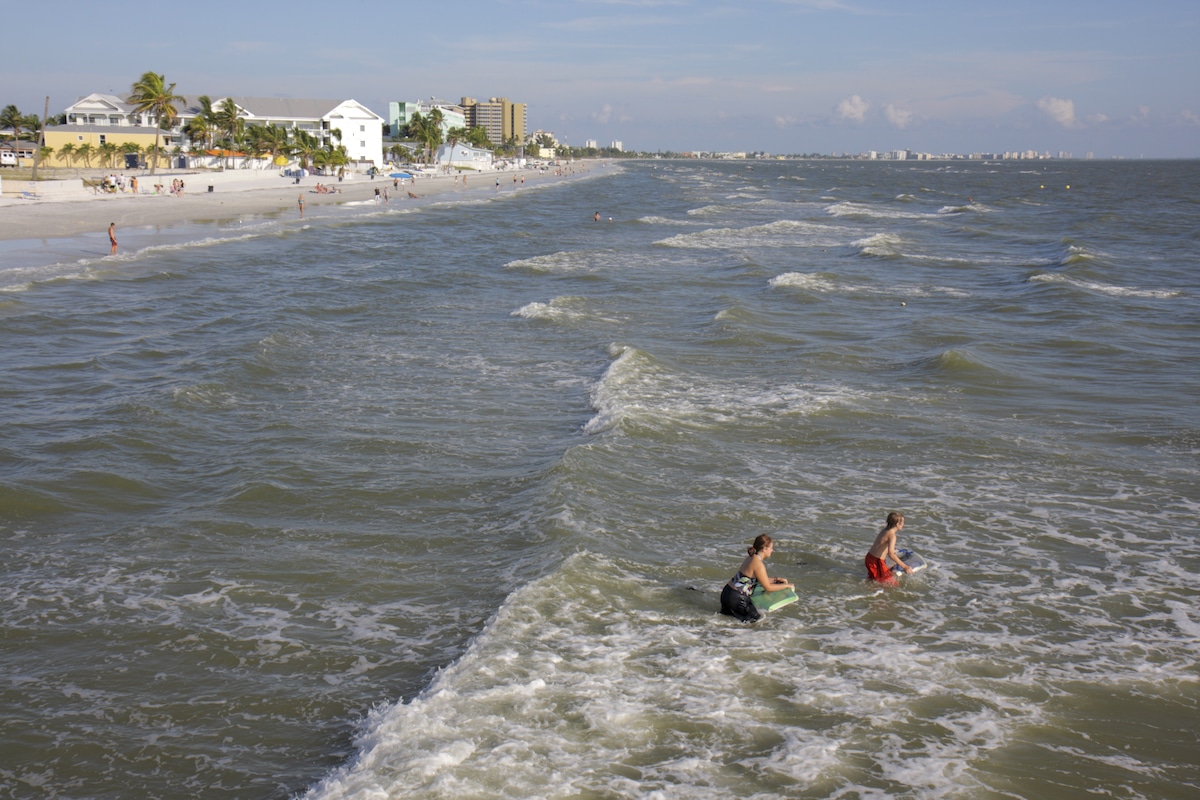CDC Issues Alert on Harmful Bacteria in Coastal Waters Amid High Sea Surface Temperatures

 Why you can trust us
Why you can trust us
Founded in 2005 as an Ohio-based environmental newspaper, EcoWatch is a digital platform dedicated to publishing quality, science-based content on environmental issues, causes, and solutions.
The CDC has issued an emergency alert over a harmful bacteria, Vibrio vulnificus, in warming coastal waters. The center noted that with extreme weather, like heat waves, flooding and severe storms, people should be careful when participating in coastal water activities.
“Amid increasing water temperatures and extreme weather events (e.g., heat waves, flooding, and severe storms) associated with climate change, people who are at increased risk for V. vulnificus infection should exercise caution when engaging in coastal water activities. Prompt treatment is crucial to reduce mortality from severe V. vulnificus infection,” the CDC shared in a health alert.
The “flesh-eating” bacteria, Vibrio vulnificus, live in salt water and brackish water, making them common in coastal areas and estuaries. While the bacteria don’t actually consume flesh, a Vibrio vulnificus infection can cause necrotizing fasciitis, which damages or kills the tissue around a wound.
This bacterial infection can be severe and even fatal, with about one in five people dying, even within just one or two days of becoming infected. If an infection is suspected or occurs, immediate treatment is critical.
The center also advised doctors to consider Vibrio vulnificus as the possible cause of infections for patients, particularly those who have had recent contact with coastal waters.
Warmer waters create conditions for the bacteria to thrive, and with sea surface temperatures reaching record highs this summer, the CDC is warning of potential open-wound contact, which is the primary way Vibrio vulnificus is transferred.
According to the CDC, Vibrio vulnificus may enter inland waters after extreme weather events such as hurricanes or floods.
Vibrio vulnificus has been primarily reported in states along the Gulf of Mexico, but infections of this bacteria along the eastern coast have increased by as much as eight times from 1988 to 2018. Some infections this year have been linked to consuming raw or undercooked seafood.
There have been at least seven deaths from this bacterial infection in Florida, which has also seen ocean temperatures rise to the temperature of a hot tub in recent months.
To protect against infection, the CDC recommended people with any open wounds to stay out of salt and brackish waters, and get out of the water immediately if they get a cut while they are in these waters. Open wounds should be covered with waterproof bandages if there’s a chance for them to come into contact with salt or brackish water, and wounds need to be washed with soap and clean water.
Because some Vibrio infections are caused by consuming raw or undercooked seafood, the CDC also advises to properly cook shellfish and seafood and wash hands thoroughly when handling seafood.
Subscribe to get exclusive updates in our daily newsletter!
By signing up, you agree to the Terms of Use and Privacy Policy & to receive electronic communications from EcoWatch Media Group, which may include marketing promotions, advertisements and sponsored content.

 233k
233k  41k
41k  Subscribe
Subscribe 



